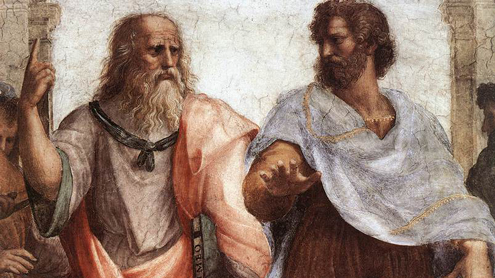In ancient Greece, there were two opposing views about the human mind. Plato thought a person was “tabula inscripta,” born with some innate knowledge. Whereas, Aristotle subscribed to the idea of “tabula rasa,” born without any previous knowledge.


In ancient Greece, there were two opposing views about the human mind. Plato thought a person was “tabula inscripta,” born with some innate knowledge. Whereas, Aristotle subscribed to the idea of “tabula rasa,” born without any previous knowledge.
In ancient Greece, there were two opposing views about the human mind. Plato thought a person was “tabula inscripta,” born with some innate knowledge. Whereas, Aristotle subscribed to the idea of “tabula rasa,” born without any previous knowledge.
In ancient Greece, there were two opposing views about the human mind. Plato thought a person was “tabula inscripta,” born with some innate knowledge. Whereas, Aristotle subscribed to the idea of “tabula rasa,” born without any previous knowledge.
Look back at some of UMSL Daily’s top stories from the past year, including the launch of the UMSL School of Engineering and the naming of the Ed G. Smith College of Business, along with continuing campus transformation.